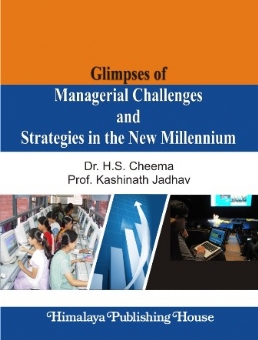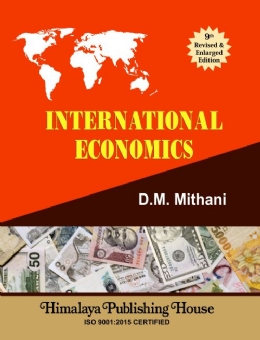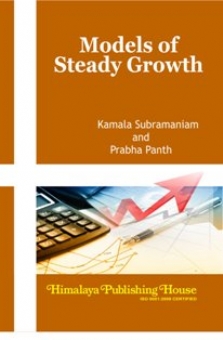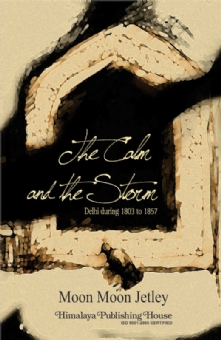In the globalized world, the only thing which is constant is “Change”. The management challenges of the new millennium are driven by a shifting globalized economy, increased competition, speed of innovation, customization of demand and emphasis of value-added services, the mobility and diversity of workforce and rapid advance in communication technology. The traditional barrier of doing business are broken down and replaced with vast opportunities and prospects for growth. Increasingly, corporate around the world are in the race that is getting more and more difficult by every passing year, with bigger stronger and more innovative global players. We, in India, are realizing these facts and many countries are re-examining their economies, introducing economic policy reforms and opening their market to foreign investment. This period of uncertainty and opportunity is forcing business to reshape conceptions of industries, organization structure, business strategies, and the role of the stakeholders.
When mighty economies across the world are in shambles, GDP rate of emerging economies is on the downside, the policymakers, heads of leading businesses and organizations are turning to cutting edge managerial strategies that might offer them some ray of hope in these bleak circumstances. It is adversity that compels man to leverage every possible strategy at his disposal.
In a lot of forums, workshops and seminars and conferences around the world, intellectual churning is taking place in order to get out of this unfortunate mess of our own making. This is what we all are witnessing at the moment as intellectuals around the globe are putting their heads together their in order to resolve this crisis.
These very circumstances are at root of the evolution of all the sciences we have developed and management education is no exception to this rule. Management, or any other field for that matter, is prone to change and this is a universal rule. For the past few decade management field has been a witness to a lot intellectual churning that ultimately writes great thought which ultimately take the form of timeproven theories. That’s how all the great management gurus right from Peter Ducker to C.K. Pralhad have contribution universally accepted management thoughts and they are followed the world over. Human kind has always moved from one stage to another and in the bargain has achieved spectacular progress. We have always been better than yesterday in many areas but we may not have progressed at all, as it is evident from facts, in some fields. All this intellectual interaction happening on different platforms are great opportunities for all of us to get the first hand information of all that is happening at the moment and people who get to hear them get new perspectives, ideas and strategies that finally help them to put the problems on hand in their proper context.
In short, “Glimpses of Managerial Challenges and Strategies in the New Millennium” serves the most important purpose of dissemination of knowledge and what else can be the better way than publishing quality proceedings of conference in the book form. Part A of the book deals with the effects of globalization and its effects. Many of the research papers highlight the effects of the globalization and it aptly takes into account how globalization is impacting the business scenario around the globe. It adds so much to the understanding of the very crucial phenomenon in the present world.
Part B tackles educational issues we are all facing in today’s society. As we all know it is the education that really differentiates a nation from the rest. We have been trying to adapt ourselves with the changing circumstances. In order to be able reap the benefits of the globalization, we need to be flexible and resilient so that we keep ourselves abreast of the fast changing world. The prosperity of the nation will surely depend on our quality of education in future.
Part C of the book is a very crucial part as it deals with financial integration, investment and economic growth. As the business world is expanding very rapidly, we need to have strategies to integrate our finances. We cannot move ahead unless we have a robust domestic investment. Today, we find that investment is happening on various fronts. The giant organizations around the world are waiting to invest in India. This is very crucial for us. At the end of the day, we need huge funds for infrastructural development. The research papers in this part throw light on myriad issues related to financial integration, investment and economic growth. All these are closely interrelated.
Part D is one more important chapter in the book. We will have many HR challenges to face in this new millennium. There will be a lot of new strategies to cope with these challenges. HR is very crucial for the long-term survival of every organization. We know very well that sustainability of any business venture depends on how well human resources are managed. There are research papers which deal with emotional intelligence, effect of family support to working women, socio-economic study of the families below poverty line and the programs of the government to alleviate poverty in the country.
Contents –
PART – A : EFFECT OF GLOBALIZATION AND IT’S IMPACT
1. Identify Strategic Technical Partners: Align the Capabilities, Enhance the Product and Create Value — Ajay Palkar
2. The Challenges of Cross-cultural Marketing Communication Strategy — Dr. P. Vijay Kumar and Ms. Jyothirmai
3. World Class Manufacturing Practices – The Best Strategy for India Manufacturing Organization to Endure in New Millennium — Syed Mudassar Nazir
4. Importance of Children in Society and Various Complexities Arising from New Reproductive Techniques — Ms. Swati Rautela
5. A Critical Study of Socio-economic Impact of Tourism in Lonavala (During 1993 to 2003-04) — Dr. Mrs. Geetanjali S. Mali and Dr. B.N. Purandare
6. CSR: A Strategic Marketing Tool for Wineries — Prof. N.J. Salunkhe
7. Engaging Gen ‘Y’: Innovative Practices at Indian Corporates — Prof. R.K. Saily and Prof. Anil Deshmukh
8. Evaluating Service Quality in Airline Industry: Specific Reference to the Dosmetic Flights Operating from Pune and Mumbai Airport. — Dr. Surabhi Jain, Dr. Mehdi Shariat Madari and Prof. Rajendra Jarad
9. Understanding Positioning Concept with respect to Pharmaceutical Companies — Prof. Rajesh Nair, Ashank Singh, Shewta Uday Kumar and Radhika Nair
10. A Study on Movie Merchandising in the Region of Mumbai — Dr. H.S. Cheema and Prof. Sneha Chavan
11. Understanding Ethics and its Impact on E-Service in Rural Areas — Ms. Vinima Sharma and Ms. Meenaxi Kamat
PART – B : EDUCATION AND ITS ROLE IN SOCIETY
12. A Study of Implications of Quality Enhancement Programme on Performance Improvement in University Educational Services — Dr. Mrs. Alpa Upadhya
13. Education Reforms in India — Dr. Satish Naringrekar
14. Board of Studies — Organization Management — Dr. Rajesh N. Pahurkar and Dr. (Capt) C.M. Chitale
15. Industry-Institute Partnership — Leading Management Education towards Students’ Employability — Dr. Rajesh Arora and Prof. Taruna Sharma
PART – C : FINANCIAL INTEGRATION, INVESTMENT AND ECONOMIC GROWTH
16. Investment Management and Strategies Adopted with Respect to Investment in Stock Market — Prof. Anjali Taide
17. Role of Budget in Industrial Development Planning in the State of Maharashtra with Special Reference to Period 1995-96 to 2005-06 — Dr. Anupama Gawde
18. Financial Performance Evaluation of Regional Rural Banks in India — Mr. G. Jagadish Brahma
19. Internet Banking: The Key to Future Indian Banking and Re-engineered for Customer Satisfaction — Dr. James Jacob
20. A Comparative Study of Foreign Direct Investment Impact on Economic Development of India and China –1995-2010 — Mr. Kishor P. Kadam
21. Investment Portfolio Management — A Research Study of Individual Investors Portfolio — Mr. Mahesh A. Mahajan
22. FDI’s in Multi-brand Retailing — A Necessity for Indian Markets — Mona Bhatia
23. Workplace Stress among Women Executives in Banks — Dr. Meeta Pathade
24. Organizational Initiative of Work Life Balance: Banking Sector — Prof. Susen Varghese
25. Reforms in FDI and FII — Prof. Sudha Subramaniam
PART – D : HR CHALLENGES IN THE NEW ERA
26. Mapping the Relation between Knowledge Management and HR Performance — Dr. Mehdi Shariatmadari, Dr. Fatemeh Peikari-Far and Prof. Rajendra Jarad
27. Emotional Intelligence: Impact on Leadership Effectiveness — Prof. Nishi Kaul
28. The Effect of Family Support on the Performance Pattern of Working Women in Mumbai — Dr. Sapana Modi and Ms. Sushma Nichani
29. After Leaving Home but before entering the Office: A Study of Working Women’s Experience — Ms. Sanskruti Kadam and Mr. M. Gauri Shankar
30. Socio-economic Study of the Below Poverty Line Families (Special Reference to Pune and Pimpri-chinchwad Municipal Corporation — Dr. Sangita Tanaji Salve
31. A Comparative Study of Poverty Alleviation Programme of Government of India and Other Related Schemes — Prof. Vinita Shrivastava and Prof. Marculine Gonsalves







